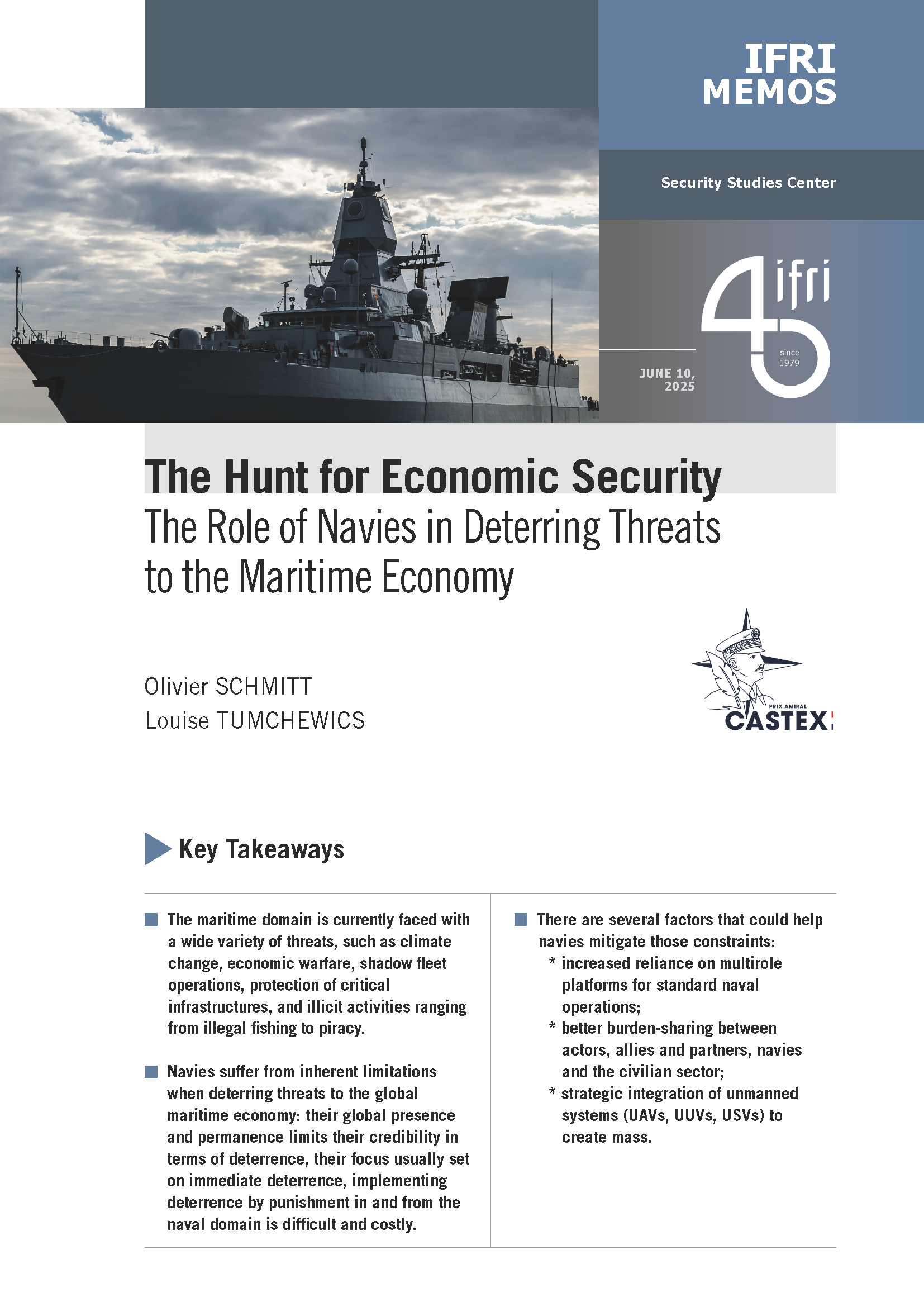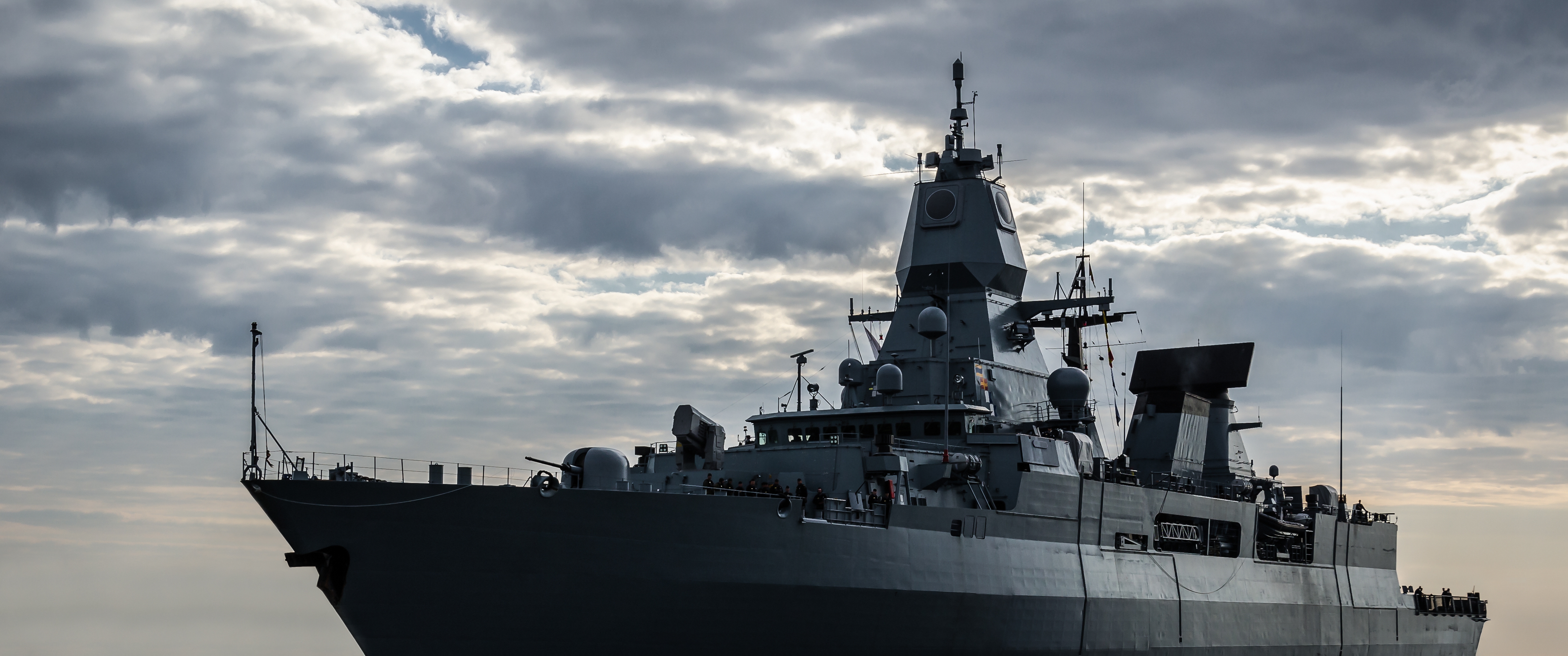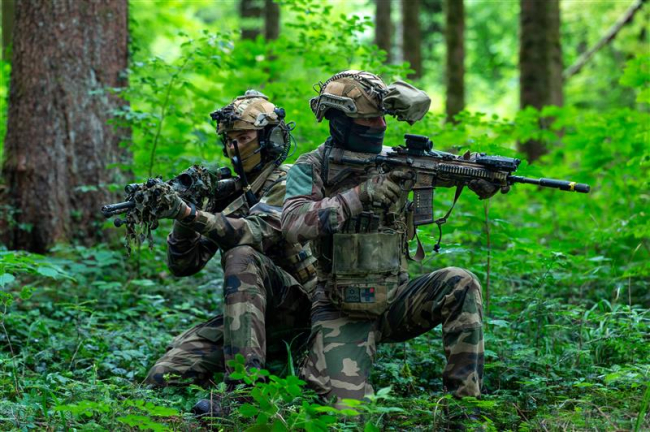The Hunt for Economic Security: The Role of Navies in Deterring Threats to the Maritime Economy

The maritime domain is currently faced with a wide variety of threats, such as climate change, economic warfare, shadow fleet operations, protection of critical infrastructures, and illicit activities ranging from illegal fishing to piracy. Navies suffer from inherent limitations when deterring threats to the global maritime economy: their global presence and permanence limits their credibility in terms of deterrence, their focus usually set on immediate deterrence, implementing deterrence by punishment in and from the naval domain is difficult and costly.

This publication is the winner of the Admiral Castex 2025 prize. Admiral Castex’s prize, named after a French naval officer best known for his work as a naval theorist and his contributions to maritime strategy, aims to promote original and unique research into naval strategy.
There are several factors that could help navies mitigate those constraints:
- Increased reliance on multirole platforms for standard naval operations;
- Better burden-sharing between actors, allies and partners, navies and the civilian sector;
- Strategic integration of unmanned systems (UAVs, UUVs, USVs) to create mass.
The classic literature in naval and maritime strategy has long identified a strong relationship between the characteristics of naval forces and one of the main features of their political utility, namely protecting sea lines of communication in order to enable trade, and thus wealth. Alfred Thayer Mahan went so far as to argue that the core purpose of a navy is to enable maritime trade and economic growth. However, the modern maritime economy faces a range of threats that naval forces must confront: climate change, economic warfare, shadow fleet operations, the vulnerability of critical infrastructures, and illicit activities like piracy and illegal fishing.
In principle, the strategic practice of deterrence offers a cost-effective means to address these challenges. Yet, we argue that achieving deterrence against threats to the maritime economy is fraught with difficulties stemming from the very nature of naval power. Building on the conceptual literature on deterrence, we identify those challenges and explore how navies can effectively deter threats to the maritime economy. Ultimately, deterring threats to the maritime economy with naval platforms is difficult, but some steps can be taken to reduce the magnitude of the challenge.

Available in:
Themes and regions
ISBN / ISSN
Share
Download the full analysis
This page contains only a summary of our work. If you would like to have access to all the information from our research on the subject, you can download the full version in PDF format.
The Hunt for Economic Security: The Role of Navies in Deterring Threats to the Maritime Economy
Related centers and programs
Discover our other research centers and programsFind out more
Discover all our analysesMapping the MilTech War: Eight Lessons from Ukraine’s Battlefield
This report maps out the evolution of key technologies that have emerged or developed in the last 4 years of the war in Ukraine. Its goal is to derive the lessons the North Atlantic Treaty Organization (NATO) could learn to strengthen its defensive capabilities and prepare for modern war, which is large-scale and conventional in nature.
"Iron Swords" A Military Analysis of Israel's War in Gaza
On October 7, 2023, Hamas' attack, dubbed “Al-Aqsa Flood,” caused a major shock and led Israel to launch the longest war in its history. Operation “Iron Swords” was notable for its unprecedented intensity, both in terms of the massive ground forces deployed and the firepower used.
Saudi Arabia’s Nuclear Temptations. Lessons Learned from Regional Instability
Saudi Arabia’s integration in the international arena and regional stability, notably through reducing its dependence on fossil energies, are crucial elements for the success of the Kingdom’s Vision 2030, the Crown Prince’s top priority. However, Mohammed bin Salman’s declarations in 2018 and 2021, indicating that “if Iran develops a nuclear bomb, we will follow suit as soon as possible”, combined with the recent strikes on key Iranian nuclear facilities, do not bode well for the future of the Kingdom, the region and the non-proliferation regime at large.
The Future of Air Superiority. Command of the Air in High Intensity Warfare
Air superiority, understood as control of the air, is a cornerstone of the Western art of warfare. It is a decisive condition, albeit not sufficient by itself, to achieve military victory, as it enables the concentration of air power toward the achievement of wider strategic objectives and protects other components from unbearable attrition levels. It is best achieved through the offensive use of air power in a joint effort to neutralize the enemy’s air power.











